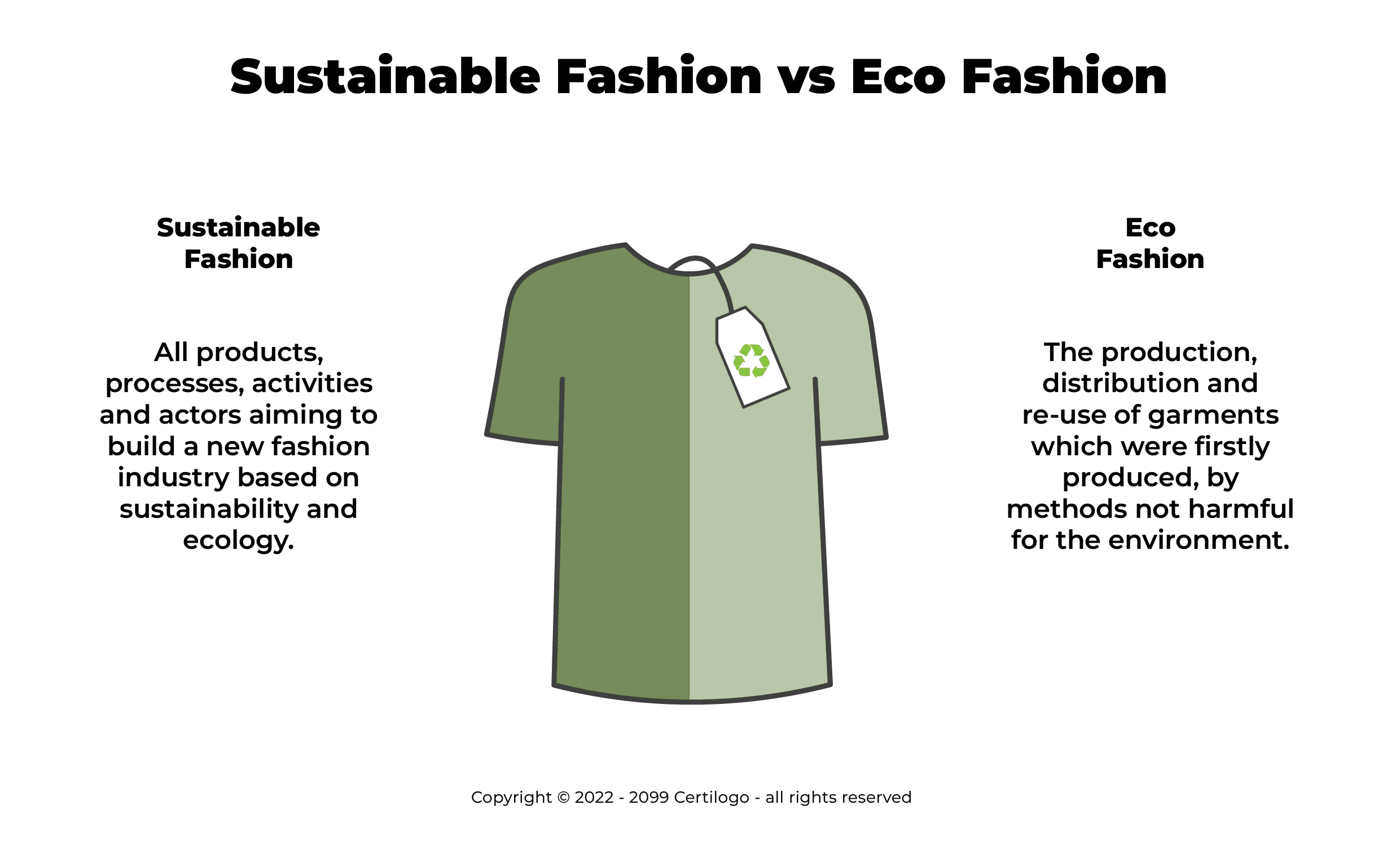Cape Town Sustainable Fashion: Redefining Style with Ethical Selections
Cape Town Sustainable Fashion: Redefining Style with Ethical Selections
Blog Article
Keep Ahead of the Curve by Exploring Innovative Style Trends
In a market as vibrant as style, staying in advance entails greater than simply complying with present patterns-- it requires an exploration of innovation. Smart fabrics, as an example, are changing garments into practical masterpieces, while 3D printing is revolutionizing layout procedures with its customizable, waste-reducing abilities. As sustainability ends up being a keystone, developments like environment-friendly materials and circular fashion techniques are reshaping ecological responsibility - Cape Town Sustainable Fashion. Additionally, the convergence of modern technology and fashion advertises a brand-new age of consumer engagement. Just how, then, can these arising patterns redefine the future of fashion, and what implications do they hold for brands looking for to flourish in this developing landscape?

Welcoming Smart Textiles
In recent years, the garment industry has observed a transformative change with the combination of wise textiles, a cutting-edge innovation that mixes innovation with material. This advancement stands for not just a combination of visual appeals and performance but additionally a substantial leap towards sustainability and personalization in style. Smart fabrics, also called e-textiles, installed advanced electronics such as sensing units and conductive threads within the textile, allowing garments to engage with the environment or the wearer.
These textiles are designed to keep track of physical specifications, such as heart rate or body temperature level, supplying real-time wellness analytics. Past health applications, clever fabrics are also being made use of for adaptive clothes, which can transform shade or pattern in feedback to environmental stimulations, thus using a dynamic fashion experience.
Moreover, the advancement of energy-harvesting textiles that create power from movement or sunlight is leading the way for self-dependent wearable innovation. This advancement is appealing to eco mindful customers and developers aiming to reduce the eco-friendly footprint of fashion. As r & d in this field breakthrough, smart textiles are expected to come to be significantly widespread, improving the landscape of modern style with their multifunctional abilities.
The Rise of 3D Printing
Revolutionizing the production landscape, 3D printing has actually become a game-changer in the fashion business. This advanced technology has actually allowed designers to push the limits of imagination, producing elaborate and tailored garments that were previously inconceivable. By leveraging electronic design and additive production, 3D printing assists in the creation of complicated geometries and patterns, permitting designers to trying out brand-new structures and frameworks.
A remarkable benefit of 3D printing in fashion is its capability to produce on-demand, reducing waste and lowering supply demands. This efficiency not only enhances production procedures yet also permits fast prototyping, enabling designers to bring their visions to life in a much shorter timeframe. Additionally, 3D printing sustains modification to a level unmatched by conventional approaches, using distinct styles and customized fits customized to individual consumer preferences.
The rise of 3D printing has likewise equalized style, making it easily accessible to arising designers who can currently make high-grade items without significant monetary investment in traditional production infrastructure. As modern technology remains to advance, the garment industry is positioned to harness the complete potential of 3D printing, exploring brand-new materials and strategies that will unquestionably redefine how style is developed and generated.
Sustainable Style Technologies
As the apparel industry comes Clicking Here to grips with journalism need for ecological responsibility, lasting fashion technologies have actually arised at the leading edge of transformative change. The expanding awareness of ecological impact has fueled a change in the direction of more eco-conscious techniques and products. Brand names and designers are currently focusing on sustainability, incorporating approaches that reduce waste and reduce carbon footprints.
One substantial development is the rise of round fashion, which stresses recycling and upcycling to prolong the lifecycle of garments. This approach not just lowers waste yet likewise encourages consumers to adopt an extra conscious strategy to clothes consumption. Additionally, using lasting products, such as natural cotton, hemp, and recycled polyester, has gained traction. These materials require less water and power during manufacturing, dramatically minimizing environmental impact.
One more development depends on the fostering of innovative dyeing strategies that make use of all-natural dyes or waterless processes, consequently useful reference decreasing the huge quantities of water and chemicals commonly used in fabric dyeing. Furthermore, developments in biotechnology have brought about the development of lab-grown leather and materials, offering cruelty-free and ecologically pleasant options to standard materials. With these introducing initiatives, the apparel industry is making purposeful strides in the direction of an extra sustainable future.

Tech-Integrated Apparel
Tech-integrated garments stands for a cutting-edge combination of fashion and innovation, improving how people communicate with their apparel. This cutting-edge domain name is marked by the addition of smart fabrics and embedded digital components, improving both functionality and aesthetic allure. From fitness trackers installed in sports apparel to warmed jackets managed by means of mobile phone applications, tech-integrated apparel offers consumers unprecedented comfort and versatility.
Pioneering brands are driving this fad, concentrating on producing garments that react to environmental stimuli or user commands. As an example, some garments can change color or pattern in response to temperature level shifts, while others include biometric sensing units to keep an eye on health metrics like heart rate or stress and anxiety levels. The seamless assimilation of innovation into fabrics also includes ecological sustainability, with efforts to develop self-cleaning materials or garments that readjust to weather problems, thus minimizing the demand for numerous layers.
Additionally, the development of wearable innovation is not just restricted to clothes however expands to accessories like watches and eyeglasses, additional expanding the extent of tech-integrated fashion. As the industry remains to introduce, the possibility for customization and personalization in garments grows, providing consumers unique, tech-enhanced style experiences that provide to their specific requirements and preferences.
Future of Virtual Fashion
Recently, the future of digital style has actually become a transformative pressure within the sector, leveraging innovations in electronic technology to redefine how fashion is produced, experienced, and eaten. By incorporating enhanced truth (AR), online fact (VIRTUAL REALITY), and 3D design tools, designers can currently craft interactive and immersive experiences that go beyond conventional fashion boundaries. Virtual style enables the production of garments that exist entirely in digital environments, providing endless possibilities for innovation without the restrictions of physical production.
This digital shift not just provides possibilities for creative expression but likewise addresses sustainability issues integral in conventional style methods. Cape Town Sustainable Fashion. By getting rid of the requirement for physical sources, online style lowers waste and reduces carbon footprints. Moreover, the surge of online style straightens with the raising consumer need for special and tailored experiences, as digital garments can be customized and customized to specific choices easily

Verdict
The fashion market's future lies in the assimilation of lasting practices and innovative technologies. Virtual fashion is positioned to redefine consumer interactions.
In current years, the style industry has actually seen a transformative shift with the combination of wise these details textiles, a sophisticated development that blends technology with fabric.As the style industry grapples with the pressing requirement for ecological responsibility, lasting style developments have emerged at the center of transformative change.In recent years, the future of virtual style has arised as a transformative force within the sector, leveraging developments in digital modern technology to redefine just how fashion is developed, experienced, and consumed. The rise of digital fashion aligns with the raising consumer demand for distinct and personalized experiences, as digital garments can be personalized and tailored to private choices with simplicity.
The fashion market's future lies in the integration of sustainable practices and ingenious modern technologies.
Report this page